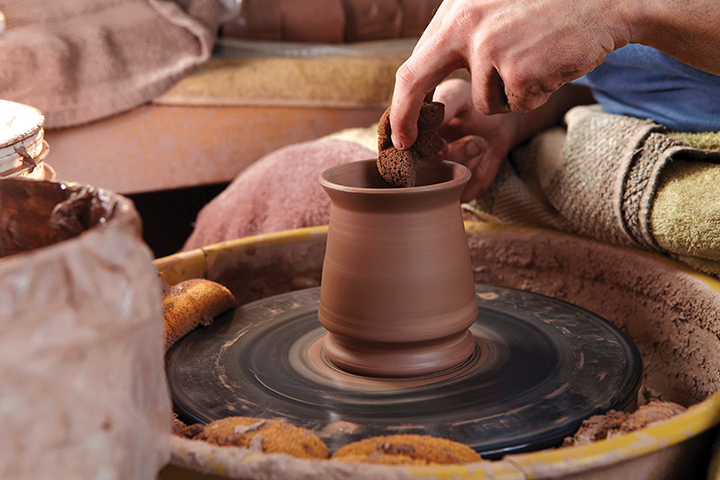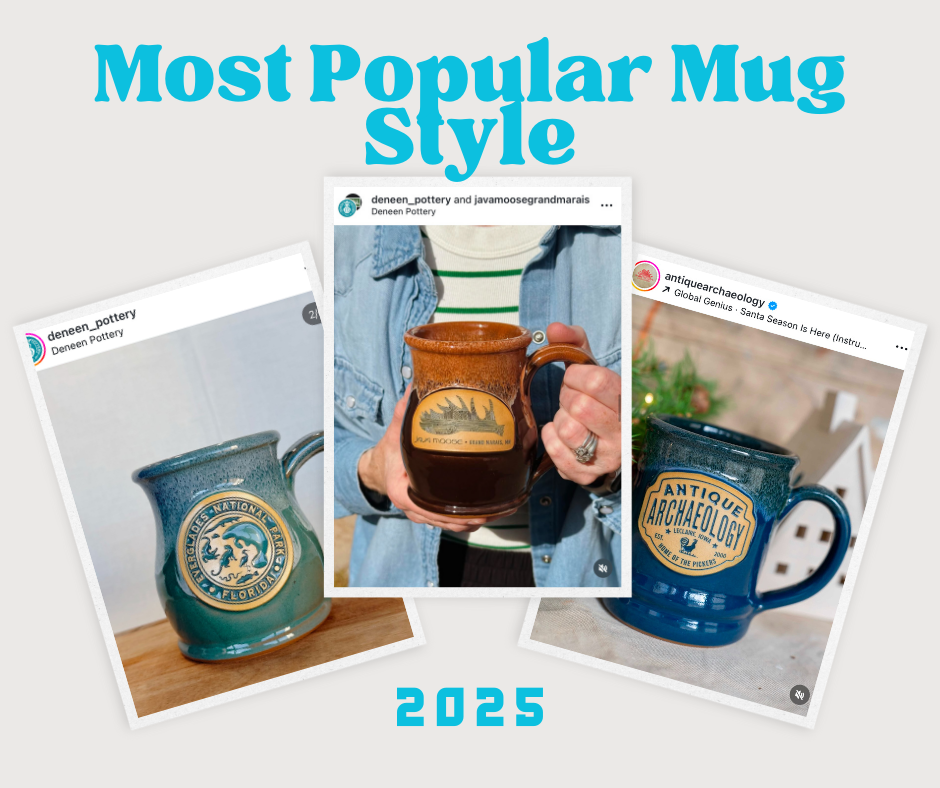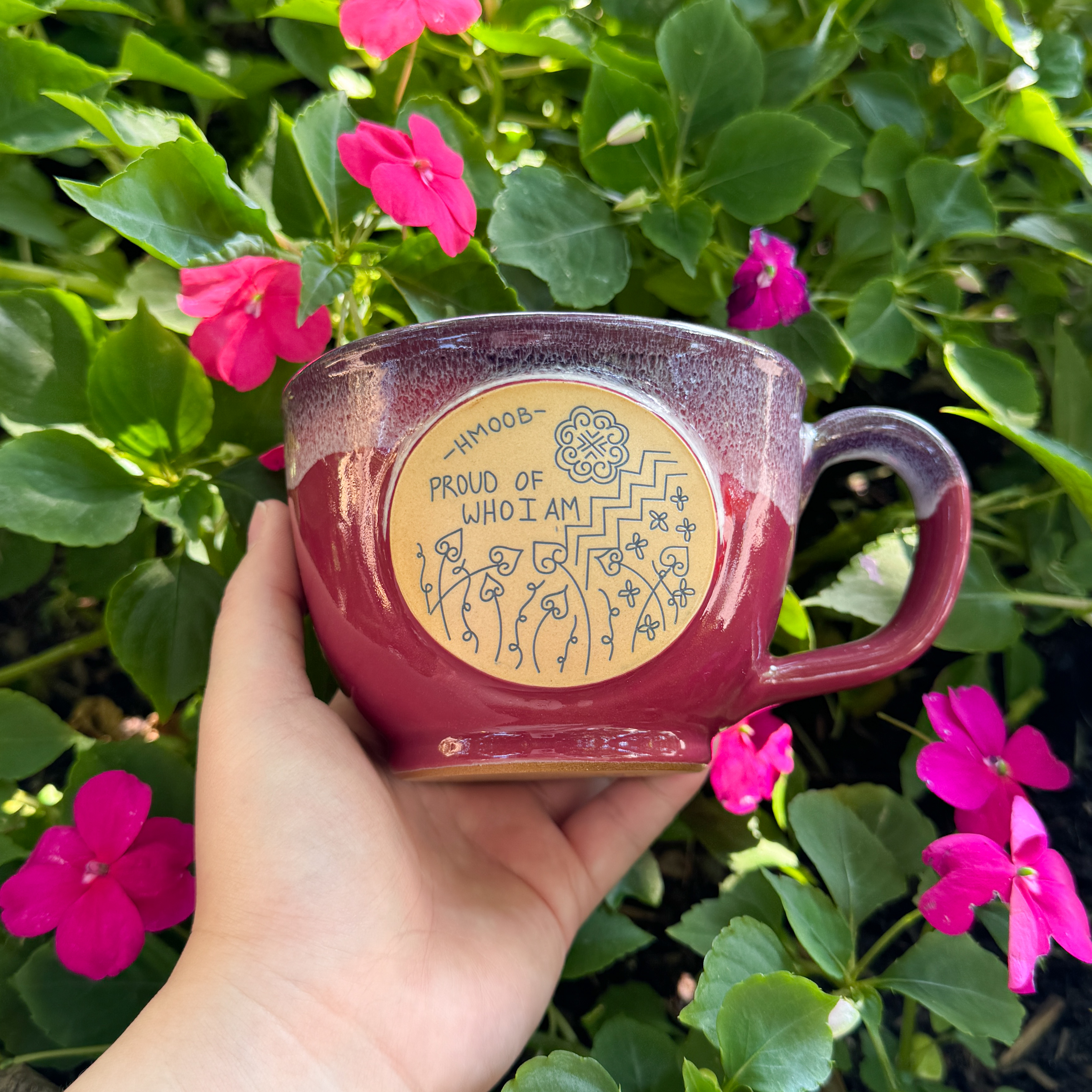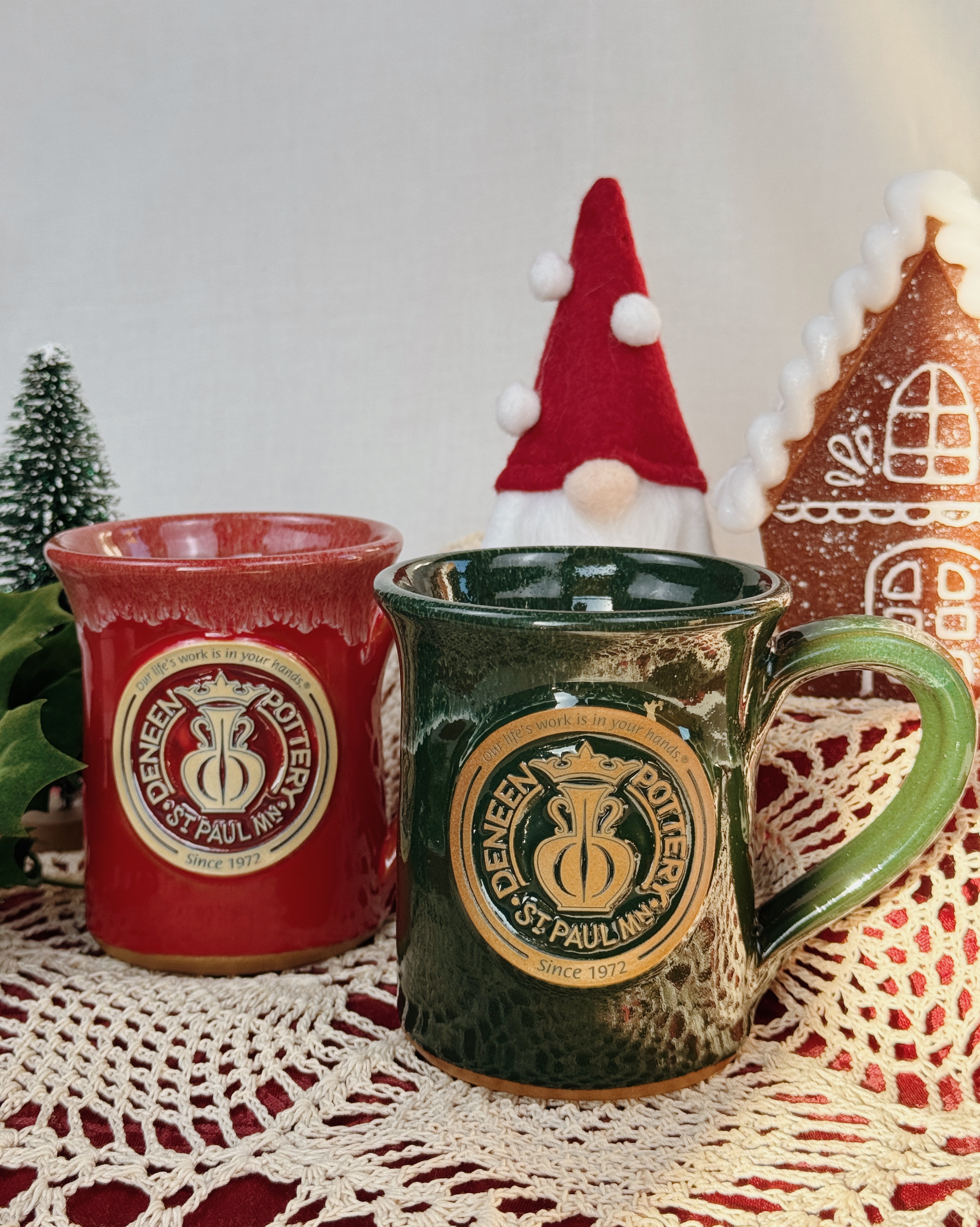
Appreciation for handmade products has never been higher, the desire for unique and original products permeates a society where so much of what consumers own, a million can also claim to have. This trend mirrors cultural and economic values that consumers, especially in the US, have been adhering more and more in recent decades. We at Deneen Pottery understand that the importance of American handmade goods increases every year. They naturally boost local economies, enable the continuation of craftsmanship, open the doors to community engagement, and pave the way for environmental sustainability.

Choosing handmade products is not only a statement for the buyer, but it directly contributes to state-wide economies. When consumers purchase artisan hand-made goods, they support small businesses, self-employed artists, and independent creators rather than drop-shipping overseas mass-producers and corporations. This creates jobs within communities and patrons some of the most dedicated people in our nation—those in pursuit of the fabled American Dream. Ensuring money spent locally stays close to home and circulating within the local economy keeps money in the hands of those who worked hard to make it.
In 2024, 33.3 million small businesses existed, which accounts for a staggering 99% of US firms at the time. Consumers prioritizing handmade products played a crucial part in sustaining these enterprises. Handmade products represent a long history of craftsmanship. The industrial revolution sapped a great deal of the average consumer’s understanding of the work required to create reliable products, never mind what is required to keep those traditions alive for generations. Many artisans acquired their knowledge from family or training with a master of the craft, resulting in high-quality goods that are carefully made and often imbued with personal stories or cultural significance.
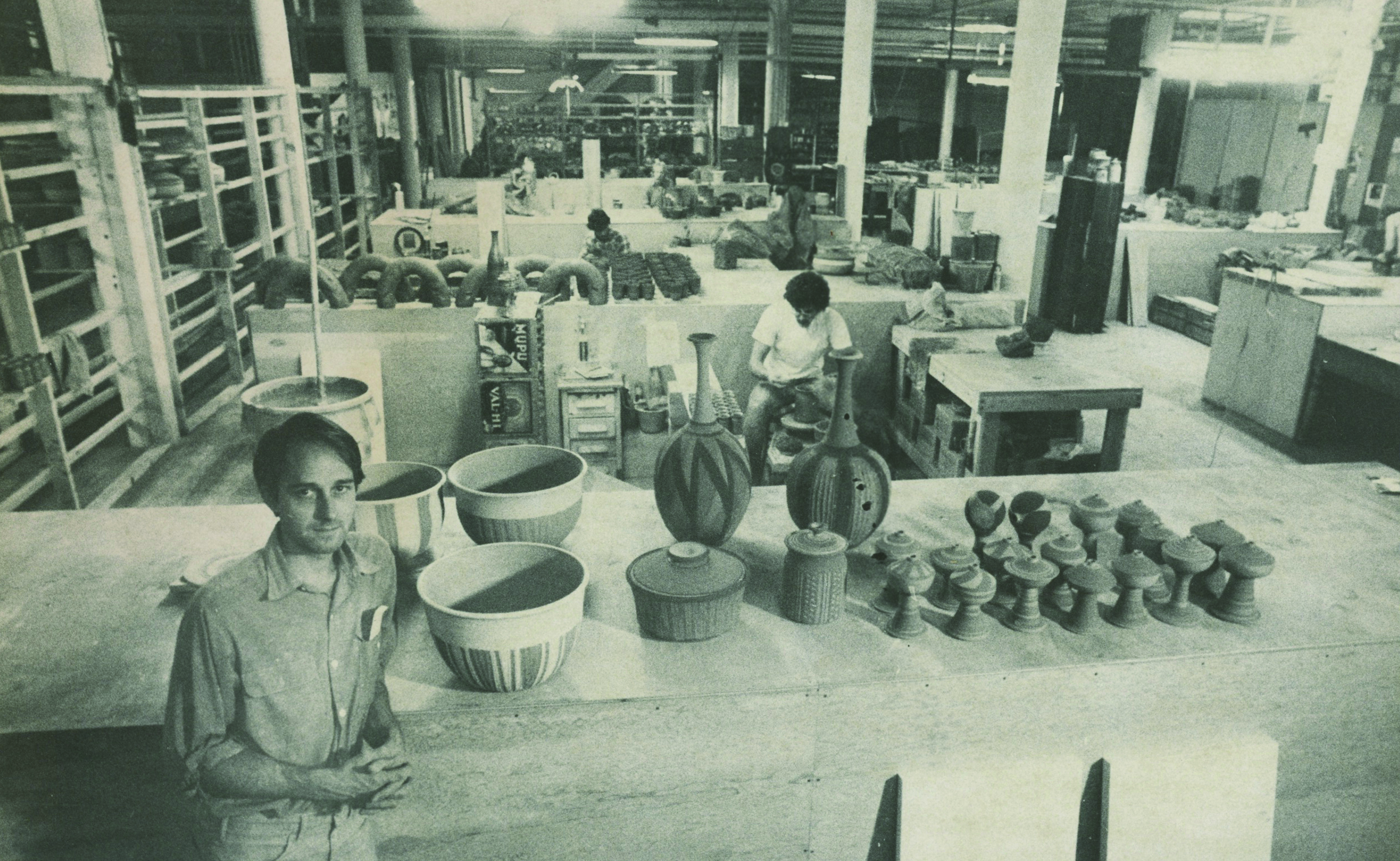
Our story began with Peter & Mary Deneen. They started their calling with ceramics while studying pottery at Luther College in Decorah, Iowa. In their studies at Luther College they were introduced to Marguerite Wildenhain who was trained as a Master Potter at the Bau Haus in Germany. Started by Walter Gropius in Post World War I Germany the Bau Haus strove to, in his own words “create an environment which would nurture the bond between art, industry through the Master Apprentice Tradition; to insure the cooperation of industry and artists in the field of mass production.” This is the inspiration for Deneen Pottery, which has grown into the business we are today.
The origins and stories of handmade art highlight the mastery and skill of artisans. Together, they comprise a diverse and multicultural marketplace. When consumers choose to purchase bespoke goods, they generate interest in traditional crafts, leading to conversations about the relevance, preservation, and importance of artistic practices in business and leisure.

Furthermore, Deneen prioritizes eco-friendly processes in our work, recycling our materials, sourcing locally and ethically, and powering our studio and building with solar panels. Consumers who buy handmade products often do so with a desire to support environmentally-friendly brands, which is growing more and more popular in the threat of changing climate and expenses of fossil fuels.

Locally made products also foster community engagement. Artisans who participate in local markets, fairs, and craft shows, create opportunities for face-to-face interactions between producers and consumers. Peter & Mary Deneen’s start was a small retail store and Pottery workshop. The local Renaissance Fair was the springboard for the Deneen’s, not only as a brand and a product, but as a recognizable part of our state’s community. Nurturing relationships with our customers that extend beyond mere transactions is not only something we strive for, but we feel is necessary. These connections are vital in an increasingly fragmented society connected often only via a screen. When consumers understand the stories behind a product, they become part of a community narrative with shared values, whether that is a commitment to excellence, advocating for diversity, supporting the arts, supporting the environment, or simply supporting someone local.
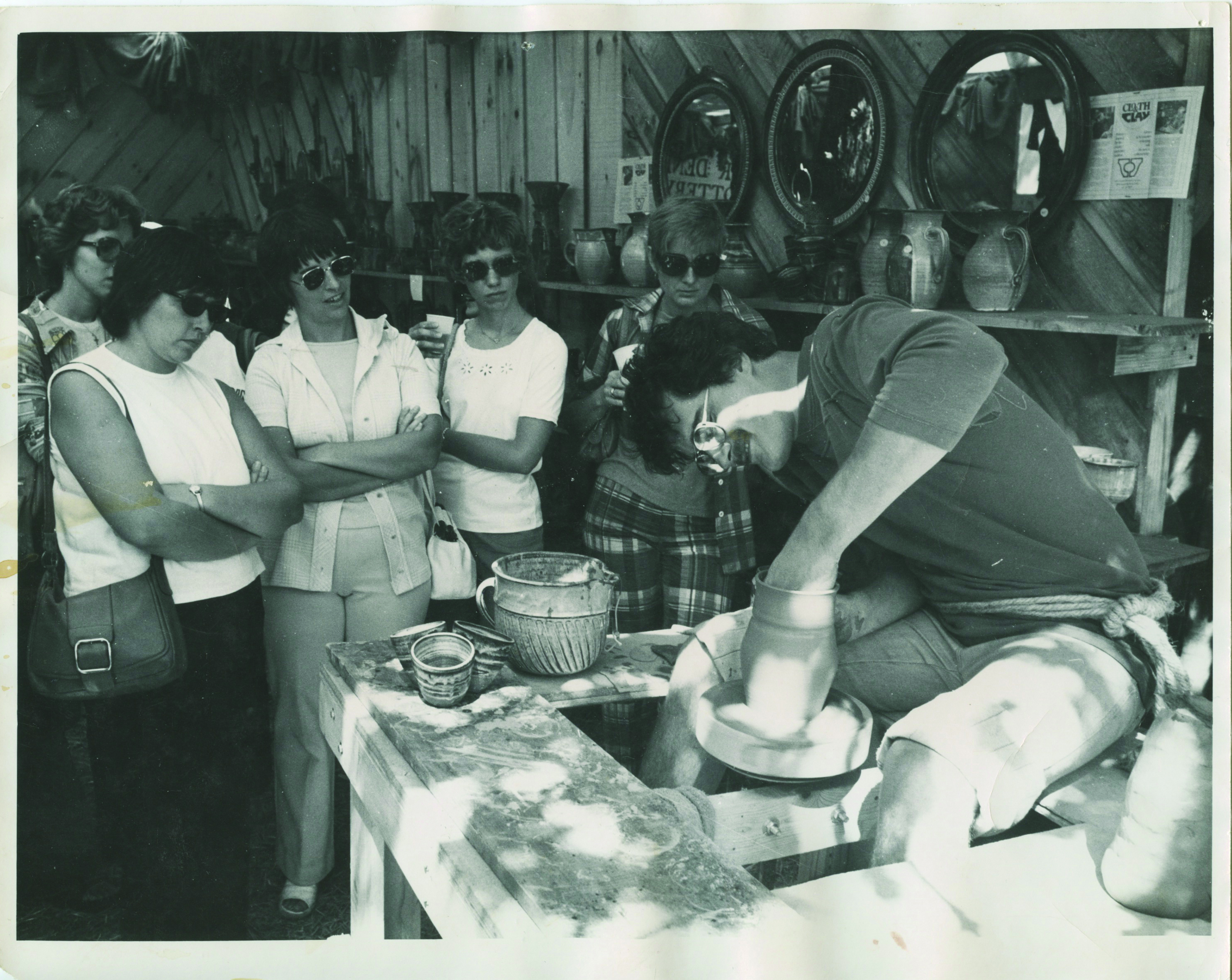
Simply put, the vital role of American handmade products is deeper than just an aesthetic preference. More and more as consumers find value in investing in handmade goods, they contribute to a more sustainable and interwoven society. Our history, our practices, and our values all contribute to what makes Deneen Pottery valuable, but in the end, the care and quality imbued in them preserve important memories for customers in a one-of-a-kind vessel as special as the occasion they commemorate with it.
